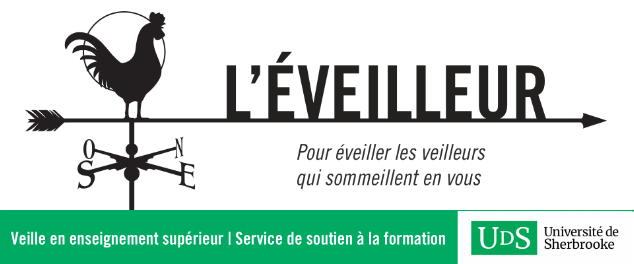À paraître dans la revue Psychological Science, une recherche de Pam Mueller (Princeton) et de Daniel Oppenheimer (UCLA) intitulée The pen is mightier than the keyboard: advantages of longhand over laptop note-taking. En résumé:
Taking notes on laptops rather than by longhand is increasingly common. Many researchers have suggested that laptop note-taking is less effective for learning. Prior studies have primarily focused on laptops’ capacity for multitasking and distraction. The current research suggests that even when distractions are eliminated, laptops still may be impairing learning. In two studies, we find that students who took notes on laptops performed worse on various assessment questions than students who took notes longhand. We show that while taking more notes can be beneficial, laptop note-takers’ tendency to transcribe lectures verbatim rather than processing information and reframing it in their own words is detrimental.
C’est l’engagement mental nécessaire à la synthèse que l’on doit faire pour suivre le propos du formateur lorsqu’on rédige à la main qui expliquerait cette meilleure rétention:
“Les chercheurs expliquent cet écart par le fait que les participants dotés d’un ordinateur prennent plus de notes littérales. Comme la plupart d’entre eux tapent plus vite à l’ordinateur que ce qu’ils écrivent à la main, ils peuvent noter plus facilement le discours du conférencier.
Cependant, quand on reproduit littéralement ce qui est raconté, l’information n’est ni sélectionnée, ni assimilée. En revanche, les personnes qui écrivent à la main sont obligées de paraphraser, résumer et schématiser ce qu’elles entendent.” (Bouckaert, 2014)
Au-delà du rappel immédiat, les étudiants ayant pris des notes à la main performent mieux dans un examen administré une semaine plus tard:
“…[T]hey took fewer notes overall with less verbatim recording, but they nevertheless did better on both factual learning and higher-order conceptual learning. Taken together, these results suggest that longhand notes not only lead to higher quality learning in the first place; they are also a superior strategy for storing new learning for later study. Or, quite possibly, these two effects interact for greater academic performance overall. […] Apparently there is something about typing that leads to mindless processing. And there is something about ink and paper that prompts students to go beyond merely hearing and recording new information — and instead to process and reframe information in their own words, with or without the aid of asterisks and checks and arrows.” (Wray, 2014)
Sources:
Bouckaert, Céline, “L’écriture à la main reste la meilleure méthode pour prendre des notes“, Le Vif.be, 12 février 2014
Herbert, Wray, “Ink on Paper: Some Notes on Note-taking“, The Blog, Huffington Post, 28 janvier 2014







Sujet passionnant que cette recherche avançant un lien certain entre l’esprit et le geste d’écriture. Catherine Perrin en parlait justement hier à son émission radiophonique avec la graphopédagogue Graziella Pettinati en ajoutant que l’écriture cursive, plus que l’écriture “script”, contribuerait à améliorer la syntaxe et l’orthographe.
Il serait intéressant de voir éventuellement les chercheurs se pencher sur l’usage de tablettes et de stylets, populaires notamment chez les professionnels en exercice (en formation continue). Autrement, très intéressant!